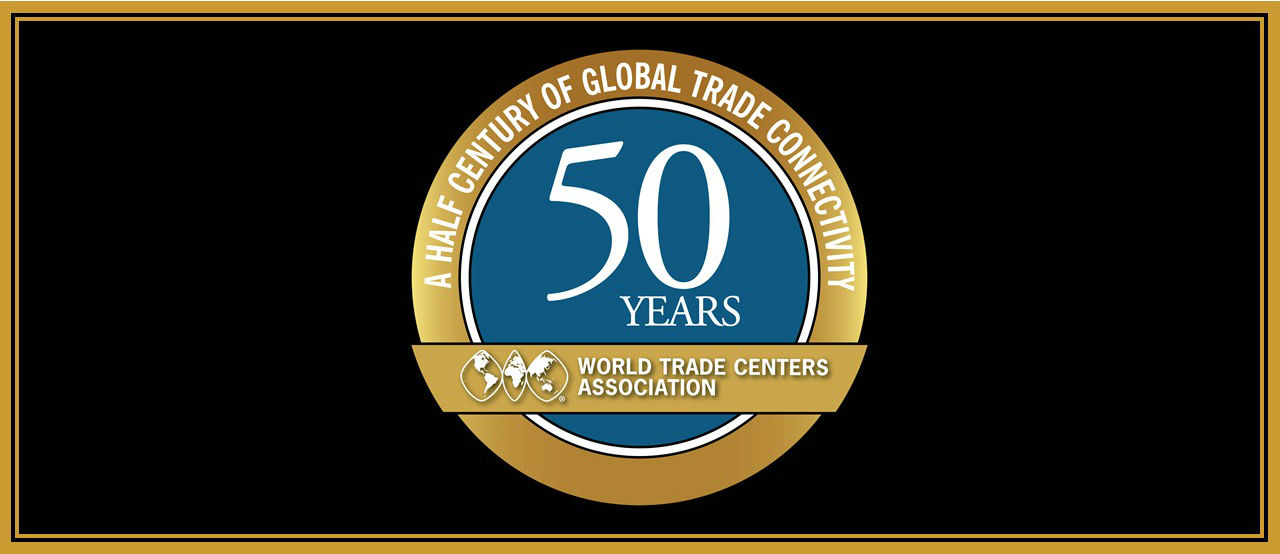Trade Shows Offer New Revenue Opportunities for World Trade Centers

The beginning of the year is a popular time for trade shows, which are great opportunities for businesses and consumers. Businesses have the opportunity to display their products, meet potential clients and foster new partnerships, while consumers have the opportunity to meet with a variety of businesses all in one place and select those that best fit their needs. In light of this issue’s theme on trade shows, the editorial team at WTCA Meridian asked Charlotte Gallogly, Founding President of WTC Miami, to pen a brief article on the types of opportunities trade shows offer World Trade Centers and tips on how to successfully host a trade show in your local market.
Many licensees of the World Trade Centers Association (WTCA) are looking for new sources of revenue to support their trade promotion services and reduce their dependence on member dues.
One strategy to consider is hosting a trade show that focuses on the business needs of a local, regional or hemispheric market. This might involve launching a new show, perhaps in partnership with an events company. Investing in a trade show can generate new revenue from exhibitors, sponsorships, attendee registration fees, and media partnerships.
It takes careful planning and implementation, but hosting a trade show can make a significant contribution to a World Trade Center’s revenue and profitability, while raising awareness of the center’s services, and assisting the business community.
A Proven Strategy
At the World Trade Center Miami (WTCM), trade shows play a vital role in advancing our mission of promoting our community as the Trade and Logistics Hub of the Americas. Since the 1990s, our trade shows have generated more than US $3.8 billion in reported international sales and stimulated the formation of thousands of new jobs.
Last September, the WTCM hosted the 23rd annual Americas Food and Beverage Show and Conference – a unique one-stop marketplace designed to bring together all segments of the food and beverage industry to expand their sales opportunities. Our sponsors included the U.S. Department of Agriculture and the National Association of State Departments of Agriculture.
Our 2019 food and beverage show attracted more than 11,000 decision-making buyers who visited the booths of 435 exhibitors from 26 countries. Our show included special pavilions for exhibitors from Africa, Argentina, Brazil, Canada, Ecuador, France, Spain, Thailand and the Unites States.
Altogether, our exhibitors reported more than US $100 million in anticipated sales. They also donated their unsold food and beverage items to the Bahamas, as part of the international humanitarian relief effort in the wake of devastating Hurricane Dorian.
Our 15th annual Air Cargo Americas International Congress and Exhibition was held the last week of October. More than 4,000 international aviation executives from 68 countries registered for the trade show, which was hosted by the Miami International Airport – our community’s leading economic engine – and powered by our World Trade Center. Altogether, our exhibitors reported more than US $50 million in anticipated sales.
Both our trade shows included conferences featuring notable speakers and panelists discussing issues related to each specific market. For instance, our Air Cargo Americas Conference featured updates on the latest security and safety regulations being used in the Western Hemisphere to secure cargo from the intrusion of biological, chemical or explosive materials.
Together, these two trade shows generated more than US $2 million in revenue for our World Trade Center in 2019.
Tips for Success
If you are considering adding a trade show to your World Trade Center’s services, it’s essential to begin planning at least a year in advance of the anticipated date for the event. It takes time to secure a suitable venue, recruit a sales team, and begin promoting the show.
You should also conduct a market study to determine the potential demand for a new show. This might involve surveying your members, holding focus groups or talking with other leaders in your global trade and logistics community.
You could also organize smaller events, such as receptions, lectures or networking activities, to gauge the level of interest in your trade show.
After determining the focus for your event, you should see if there are competing or complimentary shows in your geographic region that can affect your decision on whether or not to go forward, as well as the timing of your show.
If you decide to launch a show, you should consider engaging an experienced trade show professional who can manage the complex day-to-day activities involved in selling and promoting your event. Please feel free to contact our team at the World Trade Center Miami for advice on operating a successful trade show at cg@worldtrade.org.

